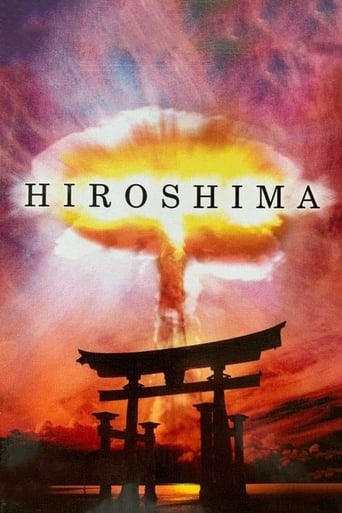emuir-1
I found this movie in my collection yesterday and realizing that I had never watched it and having no idea where it came from, I decided to view it.The depiction of the two sides, US and Japanese was impartial, both sides were dealing with similar issues, both sides had doves and hawks, although the Japanese were portrayed as quite good looking, tidy and well mannered, whereas the Americans were portrayed as cigar chomping, sloppy, loud-mouths swigging drinks as they advocated a 'kick ass' policy toward the 'Nips'. Easy to see this was not an American production. James F. Byrne in particular was shown to be a hawk in favor of showing the world that the US had the upper hand. Having spent a couple of billion on developing the bomb, the hawks wanted the taxpayer to see where their money had gone, every last dime. Equally, the Japanese military, having never lost a war, were against the very idea of unconditional surrender as they really did not understand what it mean. The politicians toyed with the dilemma of whether to sacrifice tens of thousands of people, and what the result might mean in the future, which I found rather strange given that 100,000 people died in one night in the saturation bombing of Tokyo, and that the Japanese had been responsible for millions of dead, not to mention the barbarity toward civilian internees in SE Asia. After Germany's surrender, the Americans were able to concentrate on very heavy bombing of Japan, which was on its last legs, but the military wanted to go out with a bang.My biggest complaint with the DVD was the lack of captions which meant that I could not follow the English. Fortunately, half the film was in Japanese which was subtitled, so I could understand their point of view. The color was such that I kept wondering what was wrong with my TV set as it was coming and going, until I read later that it was in a mix of black and white newsreel footage, tinted black and white for the drama, and normal color for the interviews with survivors. I would rate the actual film higher than 6, but for the lack of captions and the awful color, which in my opinion was pretentious.
eustfam
So many others have given excellent comments about this made-for-TV film and so I shall not add any more to that except to say this is a very excellent film. Its use of historical footages add to the authenticity of its depiction. All i can say is that I found tears falling down my cheeks as the film ended--with the Emperor of Japan telling his military advisers that they too must endure the unendurable as he must. While I somehow felt some sympathy for him, I cannot understand why he did not use his imperial powers to stop these madmen from starting the war in the first place. The footage showing the soldiers with Gen. Wainwright need no words to describe the brutality of the Japanese occupation. Neither has Japan apologized for the atrocity done on so-called "comfort women." On the other hand, the photos taken right after the bomb was dropped on Hiroshima and Nagasaki are too painful to look at. Dr. Oppenheimer was right in his assessment--(I paraphrase--)"We may developed a weapon that will put an end to all wars...but can man be trusted not to useit for evil purposes?" The good book tells us, "The heart is deceitful above all things and desperately wicked. Who can know it?" I cried for all who suffered during the Bataan Death March, those who lived through the barbaric occupation of the Japanese Imperial Army but I also cried for the people of Hiroshima and Nagasaki who had to endure the unendurable. In war, everyone loses. This film did not glorify war but gave a factual presentation of the events that led to the bomb which changed the course of modern history...it showed both sides--good and bad...and so I gave it the highest rating.
fred_simons2000
This is a thought provoking movie. If you want a movie that doesn't require thought, do not look for this movie. I guess the most important thing about making this movie is the statement used in the movie as motivation: "No more Hiroshima's".I liked the idea that they weaved newsreel footage in with the movie. Casting was extremely done. Instead of the "Forest Gump" mode, they had actors look like the real life people. There was interviews from people fighting in the islands that was matter of fact. Truly showed the non-glamorous side of war.Like in Tora, Tora, Tora you have two sides of the movie. Both done extremely well. Any war buff person should watch this movie. I think the directors and actors took particular pains in being as accurate as possible.
Michael O'Keefe
Excellent. Recounted are the events leading to President Truman's decision to drop an A-bomb on Hiroshima in 1945 and its aftermath. Filmed primarily in "tinted" black and white with the weaving of newsreel and stock footage. Witness testimonials put the explanation point on the haunting depictions. Kenneth Welsh is uncanny in his portrayal of Truman. Other stars of note are: Richard Masur, Leon Pownall, Wesley Addy, Daisaku Akino, David Gow, Ken Jenkins and Naohiko Umewaka. A must for WWII and history buffs.
